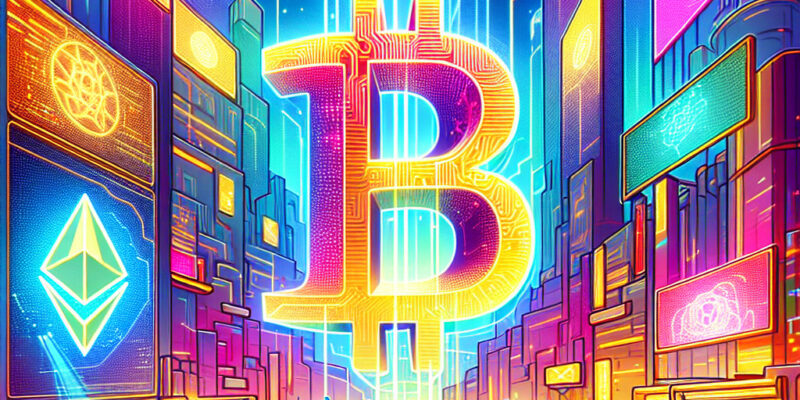Revolutionizing Ethereum: AI Proposal Aims to Transform Blockchain Future

In the rapidly evolving space of blockchain technology, Ethereum has long stood out as a beacon of innovation and potential. Now, a fresh proposal, emerging from a collaborative effort between Ethereum developers and experts at Google, is poised to further redefine its role in the digital landscape. This proposal envisions Ethereum as the foundational platform for an emerging AI agent economy, potentially transforming how we interact with artificial intelligence and decentralized networks.
Ethereum’s journey from its inception has been characterized by groundbreaking developments. Founded by visionary Vitalik Buterin, Ethereum introduced smart contracts, which enabled a new wave of decentralized applications (dApps). These capabilities distinguished Ethereum from other blockchain platforms and set the stage for ongoing exploration and expansion.
Now, as the world becomes increasingly entwined with AI, the need for a robust, secure, and scalable infrastructure to support autonomous agents rises to the fore. This is where the latest proposal gains its significance. The collaboration with Google underscores the ambition and technical depth of the initiative. By incorporating AI capabilities within Ethereum’s framework, the developers aim to facilitate a seamless environment where AI agents can operate, transact, and interact, all while leveraging the trustless, decentralized ethos of blockchain.
At its core, the proposal seeks to harness Ethereum’s existing strengths—its smart contract functionality, security protocols, and widespread adoption—to develop a sophisticated AI ecosystem. Imagine a future where AI-driven agents not only automate tasks but also engage in complex interactions across a decentralized network. They could negotiate contracts, manage investments, or conduct supply chain audits autonomously, all anchored to Ethereum’s immutable blockchain.
However, this vision is not without its challenges. Scalability remains a pivotal issue. Ethereum has been on a path to address these concerns through Ethereum 2.0, which promises to enhance transaction throughput with its transition to a proof-of-stake consensus. The synergy between these scalability improvements and AI integration will be critical in ensuring that Ethereum can support the projected volume and complexity of AI agent activities.
Security and privacy represent additional hurdles. AI systems require vast amounts of data, which often contain sensitive information. The proposal must balance the open nature of blockchain with stringent privacy measures to protect user data. Techniques such as zero-knowledge proofs could play an essential role in maintaining confidentiality while still ensuring transparency and accountability.
The implications of successfully embedding AI into Ethereum’s infrastructure are profound. Not only could it catalyze the development of more intelligent and responsive dApps, but it could also revolutionize industries ranging from finance to healthcare, supply chains to entertainment. This technological fusion could spur a wave of innovation, with Ethereum at its heart, fostering a dynamic and interconnected global economy.
Looking ahead, the roadmap for this ambitious project will likely include phased implementations, allowing for iterative improvements and adjustments. The collaboration between Ethereum and Google developers is a testament to the potential synergies between blockchain and AI, inspiring confidence and intrigue among stakeholders.
As we stand on the brink of what could be a groundbreaking evolution, it’s an exciting moment to witness the confluence of two transformative technologies. Ethereum’s aspiration to power the AI agent economy is not just about technological advancements; it’s about paving pathways to a new digital future—one where decentralized networks and artificial intelligence coalesce to reshape the foundations of how we live, work, and connect.
With each step forward, we can look forward to a future that holds both promise and complexity, requiring careful navigation and bold innovation. Yet, it’s precisely these challenges that drive progress and inspire the next generation of groundbreaking solutions.













